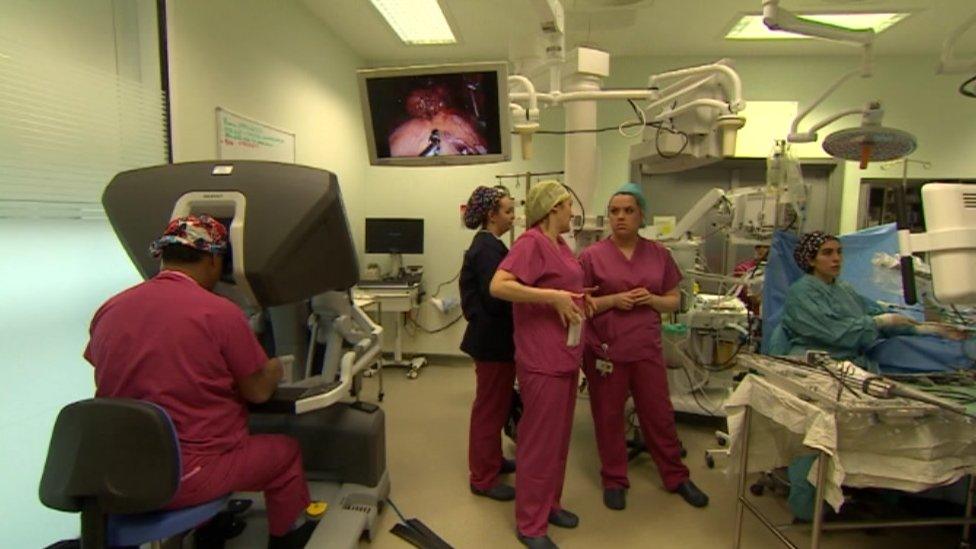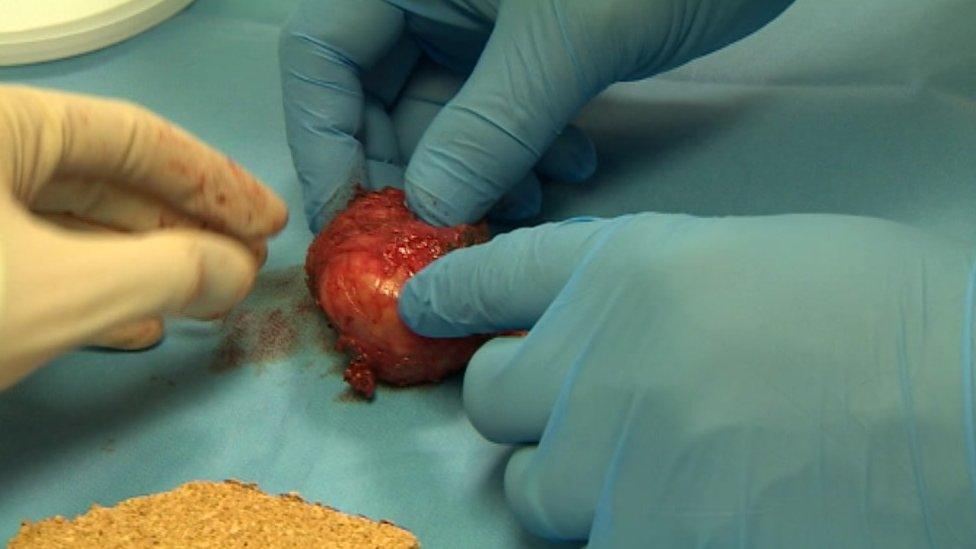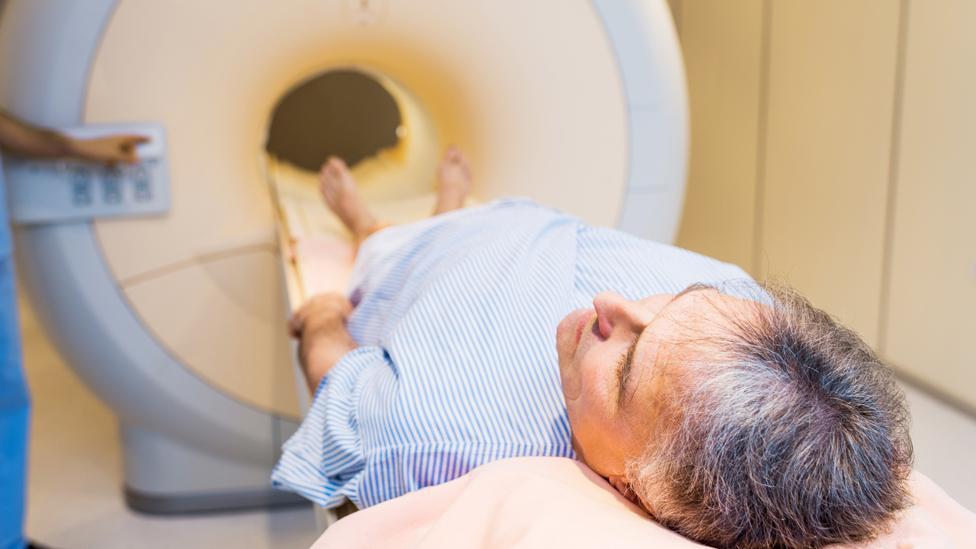Southmead Hospital's prostate cancer trial aims to save sex life
- Published

The microsurgery is done using a robot operated by the surgeon
Surgeons are trialling a new technique which they believe could help save the sex lives of men who are being treated for prostate cancer.
Men can lose their potency when nerves are removed along with the prostate gland in case they are cancerous.
In trial at Bristol's Southmead Hospital, prostate tissue will be tested to see if the cancer has spread.
Prof Raj Persaud said many men did not want to have the surgery because of the possible side effects.
Patients can become impotent when nearby cavernous nerves are removed with the prostate in case there is cancer in that area as well.
At Southmead, a team of specialists will be on hand to test removed prostate tissue while the patient is on the operating table to establish if the cancer has spread.

The removed prostate is analysed by a pathologist while the patient remains under anaesthetic on the operating table
Prof Persaud, who is behind the research, said in about 40 or 50% of cases where surgeons think they need to be very radical, and take the nerve [along] with the prostate cancer, "are actually wrong and could have spared the nerve".
"A lot of men don't want to have surgery because they are scared of the side effects," he said.
"But also, to reduce as far as possible in patients where we have done challenging nerve-sparing surgery, the chance of them having recurrence from retained cancer tissue."

Analysis
Matthew Hill, BBC West health correspondent
As with many new procedures, there's often extra cost. It's around £1,000 to have a pathologist and their team on standby to carry out a test on the removed prostate tissue to establish if the cancer has spread. But that has to be weighed against the potential cost.
Many patients chose to have penile implants, which are very expensive operations.
That's not to mention the emotional cost to men who are made impotent and the effect it has on them and their partners.
But it's one of the difficult choices that will ultimately be decided by this trial and the National Institute of Health and Care Excellence.
- Published12 December 2018

- Published9 October 2018
